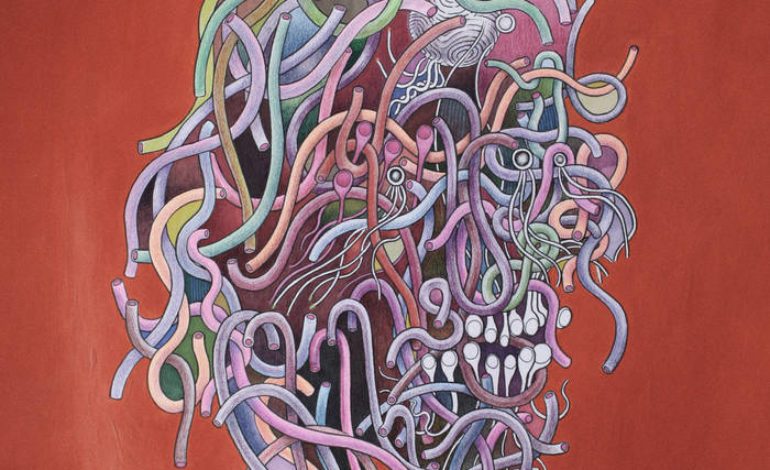

An eclectic combination of powerful instrumental sections and psychedelic reverb
Chad VanGaalen’s new album, World’s Most Stressed Out Gardener, is a mesmerizing delve into both manic anxieties and solemn instrumentals. The album acts as an eclectic mix of styles, from psychedelic rock influences of the late 1960s to electronic music of the late 1970s. Reverb combines with various instruments in order to create an album reflecting the chaos of what he describes as “a terrible year for gardening…It was terrible for the condition of the soul.” Much like gardening, the album does not always follow what one expects. However, it is a fruitful blend of techniques that truly highlights VanGaalen’s talents.
“Spider Milk” is a perfect example of these diverse elements acting in harmony—beginning with softer vocals and more stripped-down instrumentals, the song resembles a ballad before erupting into a heavier guitar solo in reverb. Maintaining a steady bass line allows the song to not lose itself in the noise. It remains melodic even beyond the chaos, something that is admirable in and of itself. It is a connection that puts forth a strong idea for the rest of the record.
The more bizarre notes of the record are put forth in “Starlight.” Resembling chamber music in its introduction, it is cut by the electronic current and layered instrumentals. The hypnotic vocals seem as an intrusion into the religious undertones, turning the song into a multi-dimensional framework. It is clear that combining sound into a distinct soundscape is one of the strongest talents prevalent.
Truly, the “Samurai Sword” is textbook psychedelic rock. With cowbell and xylophone alongside the other more traditional rock instruments, there is clearly room for experimentation. The clear late ‘60s influences can transport the listener into the past, reminiscent of a hallucinatory mania that comes with the anxieties of looking for something that one is unable to find. While less idyllic than its predecessors, it certainly complements the track well.
This is not to say that there are not undeniably catchy, pop-rock inspired ventures in World’s Most Stressed Out Gardener. “Nightmare Scenario,” despite its dark subject matter, has an infectious bass line. Even when switching keys, the song maintains its rhythm and energy throughout. The song’s instrumental power connects beyond the anxieties of the lyrics and into jam-rock influences, creating a fun break in between heavier, louder subject matters.
However, it must be noted that VanGaalen also has notable contributions to musical scores, something that clearly is shown in the album itself. Some of the strongest songs on the record only involve instrumentals. Highly conceptual in its premises, these songs truly highlight the power of music to its bare essentials.
“Plant Music” is reminiscent of the 1976 record Plantasia, a notable electronic record known for its instrumentals “for plants and plant lovers.” Ironically, even if most of the record does have electronic elements, strings and acoustic guitar reiterate a sense of beauty interjecting the more reverberating lyrical pieces. Despite being one of the shortest songs on the album, it has a power that lingers. It has a sense of continuity, the continuous chords representing the sense of growth that the Plantasia record hoped to achieve. By interjecting an electronic-inspired album with these instrumentals is a pleasant undercurrent that promotes a sense of peace beyond the chaos.
“Earth From a Distance” is a fascinating exploration as seen in space. With electronic elements, its tones mimic that of the hardwiring of a spaceship or a space station, probing into a far-away land. Its elements are cinematic, reflecting a tone seen in film scores. It has great emotion depth, connecting the listener into the sort of breathlessness that occurs when one imagines Earth from space. The track provides a great solace in this escape, appreciating a larger picture beyond the earthly realm and all its anxieties. Its approach truly makes the album well-rounded, encouraging many different perspectives. It is truly one of the strongest tracks of the record in understanding what mankind is facing—the simultaneity of tragedy and hope.
